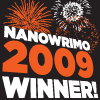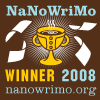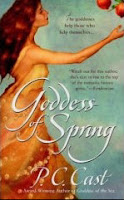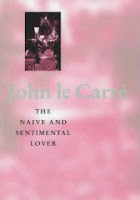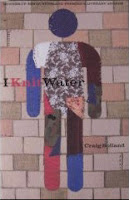New Year’s Reading Resolutions #7
 The nameless narrator forms part of the audience of the Time Traveller; first as he explains his invention and makes the prototype disappear before their eyes, and later when he returns from his trip and relates the tale of what he discovered in the future. At first the year 802 701 seems a benign paradise; warm climate, beautiful if idle population, all of nature conquered by science. But where do their food and goods come from? Why are they so afraid of the dark? And just where did his time machine go? The Time Traveller’s hunt for answers overturns all his initial conclusions about the future he finds himself in, and reveals the horrific consequences of - as he surmises - a vastly increased gap between the Haves and the Have-Nots.
The nameless narrator forms part of the audience of the Time Traveller; first as he explains his invention and makes the prototype disappear before their eyes, and later when he returns from his trip and relates the tale of what he discovered in the future. At first the year 802 701 seems a benign paradise; warm climate, beautiful if idle population, all of nature conquered by science. But where do their food and goods come from? Why are they so afraid of the dark? And just where did his time machine go? The Time Traveller’s hunt for answers overturns all his initial conclusions about the future he finds himself in, and reveals the horrific consequences of - as he surmises - a vastly increased gap between the Haves and the Have-Nots.
The future as presented here is a very Victorian vision, with the social changes arising from industry and class differences. But its presentation holds its appeal in the present day, beginning with a lucid explanation of time-as-fourth-dimension and packing a lot into its 90-something pages. My favourite part was the exploration of the old museum, dust-laden and partially collapsed, where some exhibits were perfectly preserved and others all but destroyed by time. I was a little disappointed, however, to see that the Time Traveller only went forward in time, and didn’t pay a visit to the past.
This book raises all sorts of interesting questions as to what would happen if science ever did conquer nature; if everything was discovered and there were no mysteries left. Would people find a way to keep innovation and inventiveness going? Or would the world - or the upper classes thereof - fall into idleness? Only time will tell....
Rating: B+

